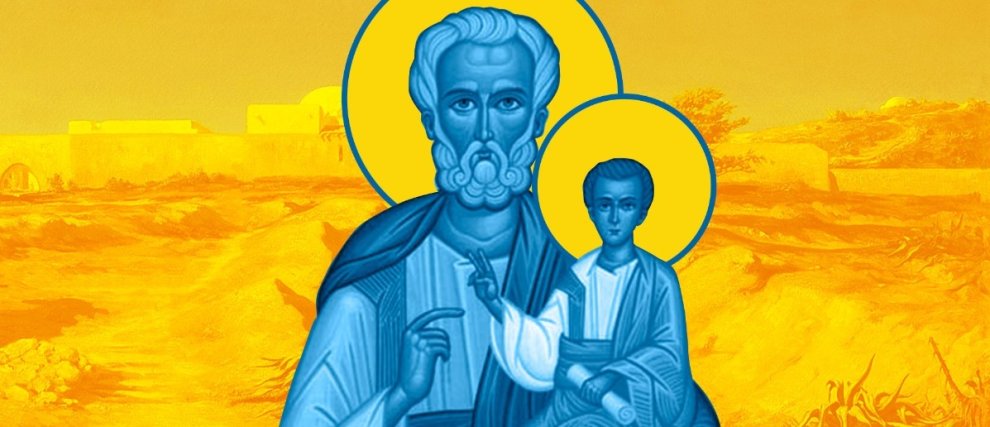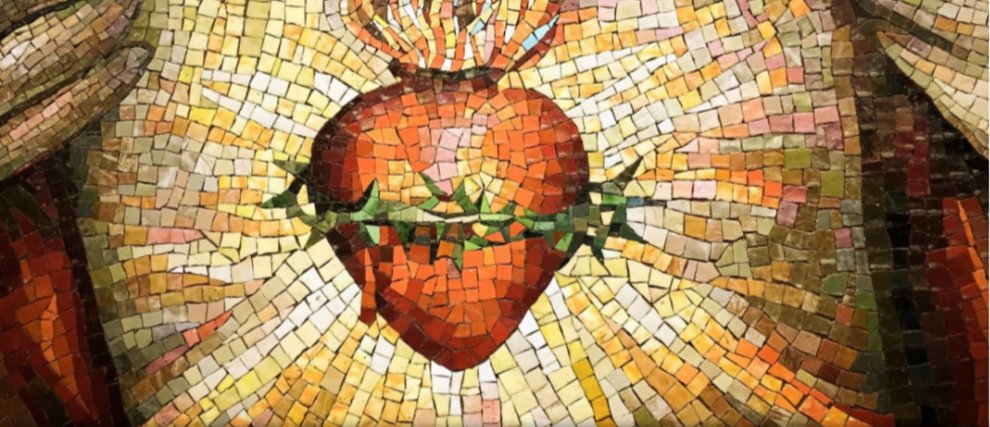Saint Philip Neri
Biography of Philip Néri
Philip Néri was born in 1515 in Florence to a wealthy family. He developed a deep faith thanks in particular to the visits of the Dominicans of San Marco. At the age of 16, he left his hometown for Rome and never returned to Florence. He began by settling with his uncle, a merchant in San Germano, near Mount Cassin. Philip spent time in this Benedictine monastery and matured his vocation. At the Priory of Gaetus, he was gripped by the love of Christ and decided to follow him. In Rome, Philip lived like a hermit; he was housed in a family where he helped to educate the children. He divided his time between prayer—going from church to church—and caring for the sick in hospitals. Philip also took courses in philosophy and theology at the Roman university.
The young man often prayed in the catacombs to the holy martyrs. This is where he experienced a decisive event during Pentecost in 1544. As he invoked the Holy Spirit, as he frequently did, he felt filled with a burning fire of love, giving him such joy that his heart began to beat so hard that it could be heard outside. His whole life, his heart showed physical evidence. In Rome, Philip was an ardent apostle, standing in the public square and proclaiming the message of the Gospel, calling for the conversion of the Romans, many of whom then lived as pagans. He testified tirelessly, to young people in particular, addressing each one with a smile, and a personal word. It was at this time that he founded the Oratory (Oratorio). He played an important role during the Catholic Reformation undertaken with the Council of Trent (1545-1563).
In 1551, after a long hesitation, he finally followed the advice of his spiritual father, and was ordained a priest. From then on, his life was centered on the sacraments and spiritual direction: he said Mass and spent a lot of time in the confessional, while taking care of the group of lay people he founded: the Oratory. The work became so extensive that Philip had to delegate his duties to the disciples, who consecrated themselves to the faithful. They wanted to live around Philip and this is how the congregation of the Oratory was born around 1564. However, despite having written a small rule, Philip did not live with his brothers. He was fully occupied by his lay group and visiting the sick and the poor.
The work grew to such an extent that it aroused jealousy and suspicion, and Philip patiently endured everything. In 1575, the faithful were so numerous that Philip needed a church. Pope Gregory III granted him and the “congregation of priests and secular clerics named of the Oratory”, which was at the same time recognized by the Church, the church of Saint Mary of Valicella. Despite his age and fragile health, Philip renovated the church, still known today as the Chiesa Nuova (new church).
In 1588, by order of the pope, Philip finally had to join his community and live with them. Despite everything, he led a withdrawn life, seeking not to draw attention to himself, while he experienced frequent ecstasy during Mass in particular. For this, he had to celebrate privately, and often used humor to hide his moments of mystical elevation. He spent a lot of time in prayer and meditation, receiving many visitors in his room. Philip died on May 26, 1595 after confessing his own and calmly announcing the time of his death.
Philip Néri was canonized on March 12, 1622 in Rome by Gregory XV, and his feast day was set for May 26. He is the patron of the city of Rome as well as humorists because of his keen sense of humor.
To get to know this saint so full of joy of Christ, discover the film retracing the story of Philip Neri. Also find other lives of saints on Hozana.
Work of Saint Philip Neri: the Oratory
The great work of Saint Philip Neri is the Oratory. We find all his pastoral experience, which aims at conversion and sanctification. He founded the Oratory to share his personal experience with his disciples. He offered them his prayer habits: time of prayer and silent prayer, devotion to the Holy Spirit and to the Blessed Virgin, pilgrimages to the saints, reading of the lives of the saints and of the Fathers of the desert. All this is lived in a joyful fraternal life.
It was Peter de Bérulle who introduced the Oratory to France in the 17th century, becoming the initiator of the “French School of Spirituality”. Dissolved in 1792 with the revolution, the Oratory was restored in 1852.
Today the Congregation of the Oratory, also called the Confederation of Oratorians, is a community of priests who do not take vows, but live in common. Each oratory is independent. The Oratorian Fathers are involved in various apostolic activities: education, parishes, intellectual research, chaplaincy, etc.
Words and quotes of Saint Philip Neri
Philip Néri is known for his humor and ease of seeing the bright side. He never ceased to proclaim the Gospel message with enthusiasm and joy, not seeking to impose anything on souls, merely showing them the way of love and holiness. He had words that turned hearts, here are some quotations.
- First and foremost, prayer:
“In order not to get tired, you must often raise your heart to God throughout the day. The mystery of God is not revealed to our intelligence. The wisdom of Holy Scripture is learned more by prayer than by study.”
“Nothing helps man more than prayer. It is the Holy Spirit who teaches us to pray. It gives us to live constantly in peace and joy, which are a foretaste of Paradise. ”
- Christ is everything:
“Whoever wants something other than Christ does not know what He wants; whoever seeks something other than Christ does not know what He wants; whoever works and does not work for Christ does not know what He does.”
- Always love:
“Come on, the time for your prayer is over, but not for doing well. Be happy, always happy! Be good if you can. ”
- Obedience to the Divine Will:
“He is in error, the one who wants something other than God. Whoever loves anything other than Him commits a lamentable error! ”
“Even in the midst of the crowd, we can be on the path that leads to perfection. Obedience is the shortest path to perfection. ”
- The way to holiness:
“We must not want to do everything in one day, and we do not become a saint in four days, we must move forward step by step. ”
“People who live in the world must strive to achieve holiness in their own homes. Life at the court, profession, work are not obstacles for those who want to serve God. ”
- The purity of the heart:
“Not everyone who seeks visions and ecstasy knows what they want. Let us aspire to purity of heart because the Holy Spirit dwells in a pure and simple heart. ”
Prayers to Saint Philip Neri
Prayer to Saint Philip Neri for joy
Saint Philip Neri, patron saint of joy, you who have believed in the Scriptures and in the promise of the Lord to be always present, we entrust our worries and our sufferings to your compassion. We come to you with a heart that swells with an immense love for God and all his creation. Listen to us and keep us safe by your gentle intercession. May the joy of the Holy Spirit who filled your heart transform our lives and bring us peace. Amen”
Prayer of Saint Philip Neri
My Lord Jesus, I wish to love you. My Lord, I told you, if you don't help me, I will never do anything good. I seek thee, and find thee not: come unto me, my Lord. I don't want to do anything but your will. I mistrust myself, I confide in you.

